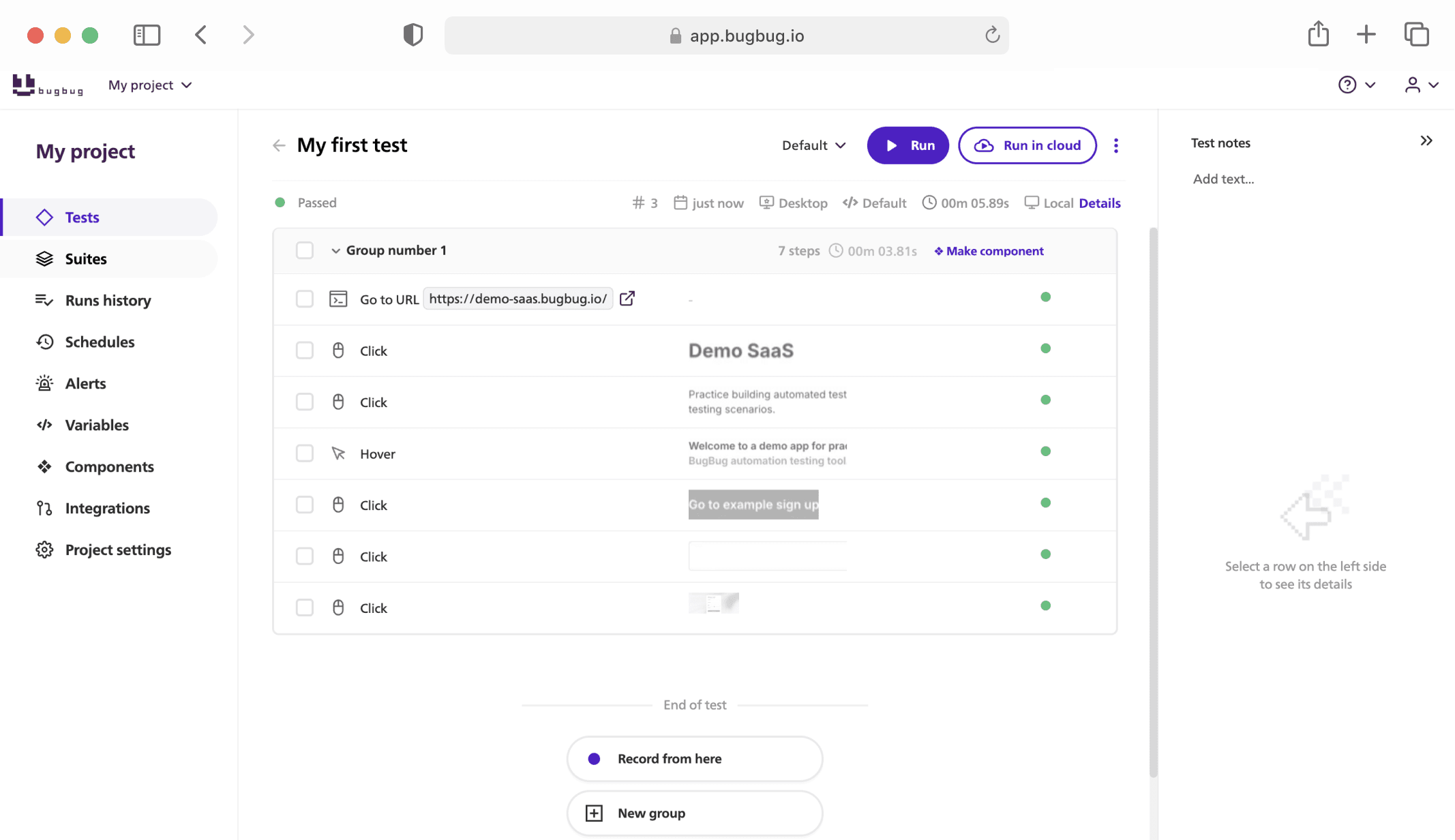Testing user flows that involve pop-up windows, such as third-party logins like Google Auth or as third-party payments like PayPal, has long been the bane of QA engineers and developers alike.
Traditional testing tools often stumble when a new window appears, disrupting the smooth automation of test scripts.
But what if you could record and automate these actions just as easily as any other step in your user flow?
This is where BugBug's innovative feature for recording actions on pop-up windows shines, offering a seamless testing experience.
Check BugBug's documentation for more information.
The Pop-Up Challenge in Automated Testing
Picture this common scenario: a user attempts to log into their account using an external service like Google. A pop-up window appears, they authenticate successfully, and the pop-up closes, bringing them back to the main application.
Automating this flow has typically been complex, as testers must handle the switch between the main window and the pop-up, not to mention ensuring the pop-up's actions are recorded accurately.
BugBug simplifies this by cleverly transforming pop-up windows into new browser tabs.
Step-by-step pop-up window handling instruction
1. Start the Recording: Initiate a new test or edit an existing one within BugBug.

2. Trigger the Pop-Up: Click the element that would normally trigger a pop-up window. BugBug steps in here, redirecting the pop-up to open in a new browser tab instead.

3. Automated Context Switch: The testing context automatically shifts to this new tab, allowing you to perform necessary actions, such as logging in via an external service, without manual intervention.

4. Complete the Flow: Go through the login steps as needed. BugBug records all these actions as if they were happening in a pop-up window.

5. Seamless Transition: Once the login or action in the new tab is complete, it closes automatically, mimicking the behavior of a pop-up. The testing context then switches back to the main tab.
6. Continue Recording: With the focus back on the main application, you can carry on recording subsequent actions.
Read more about pop-up window actions.
Benefits of BugBug's Approach
- No Pop-Up Blockers: With pop-ups being redirected to tabs, there's no need to worry about pop-up blockers interfering with your tests.
- Consistent Context: Testers no longer need to manually switch contexts, reducing the risk of errors and saving valuable time.
- Accurate Recording: Every action within the pop-up is recorded with the same fidelity as other steps, ensuring a comprehensive test script.
- Streamlined Test Flows: The automated closing of tabs after the action streamlines the flow, closely replicating the user's experience.
Say goodbye to the hassles of pop-up window testing and hello to streamlined, efficient automation with BugBug.
In conclusion, BugBug's feature allows QA teams to record and automate tests involving pop-up windows effortlessly, offering a much-needed solution to a longstanding issue in test automation.
Whether it’s a third-party authentication or any other pop-up driven interaction, BugBug ensures that your automated testing is as close to real-world user behavior as possible.
Happy (automated) testing!



